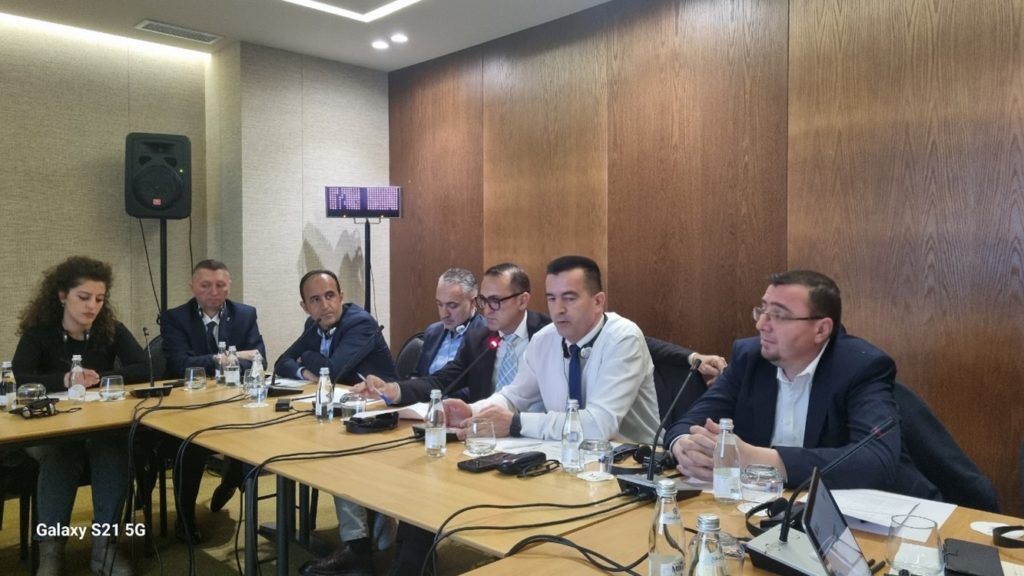A two-day workshop was held in Pristina on 14th and 15th April, 2025 organized by the Balkan Enforcement Strengthening Project (BESP), funded by the Ministry of Foreign Affairs of the Netherlands, brought together enforcement agents and media representatives to engage in open dialogue about mutual misconceptions and myths surrounding the enforcement profession in Kosovo.
The training created a rare platform where both parties could express their views, identify areas of misunderstanding, and work toward building a constructive relationship aiming to improve the public perceptions and understanding of enforcement.
While enforcement is one of the oldest legal professions in the world, and already 10 years performed by private professionals in Kosovo, it remains widely misunderstood. Public perception continues to be shaped by myths and negative stereotypes, often portraying enforcement agents as profit-driven and lacking empathy for vulnerable populations.
Participants in the workshop addressed these misconceptions head-on. Common myths, such as claims that enforcement agents amass excessive income or act without compassion, were openly discussed. Enforcement professionals also shared personal stories highlighting positive experiences and their dedication to serving justice impartially — not favoring any party, but rather resolving problems and promoting the common good.
Another key point of discussion was the need for a stronger and more stable collaboration between the Ministry of Justice and the Chamber of Enforcement Agents. Participants emphasized that enforcement professionals should not be subject to political manipulation, as such misuse undermines their work and contributes to misinformation among the public.
The workshop also raised concerns about the future of the profession. With many professionals increasingly discouraged from pursuing or continuing in this field and 1/3 of the prescribed by law limited number of PEA positions never filled, the declining interest poses a risk to the system’s sustainability. Gender disparity was also addressed, as currently only two women serve as enforcement agents across the Republic of Kosovo, while in other parts of the world the distribution is almost equal. Participants voiced a strong call for improved gender equality and greater inclusiveness in future generations.
In an effort to reduce high indebtedness and the need for enforcement procedures altogether, the workshop also highlighted the importance of financial literacy, especially among young people. Proposals were made to incorporate education on personal finance management and responsible financial behavior, aiming to prevent individuals from falling into situations that require enforcement actions.
In addition to this recent workshop, the BESP project has previously conducted a series of trainings with its experts, covering themes such as leadership, strategic public messaging, effective media engagement, crisis communication, and practical interview techniques — all intended to better equip enforcement agents in their public-facing roles. The BESP initiative continues to play a vital role in professionalizing the enforcement sector in Kosovo and promoting transparency, communication, and trust between enforcement agents, the media, and the public.
